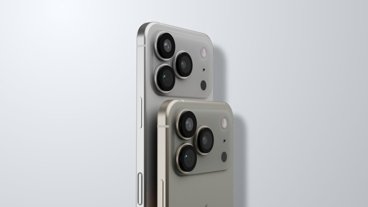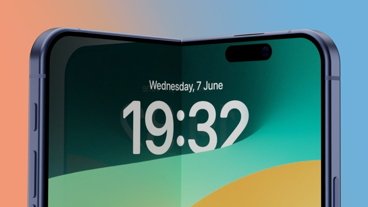Smartphones such as Apple's iPhone have turned into indispensable aspects in their users' lives, but a recently discovered court document demonstrates how authorities can use the seemingly innocuous devices as remarkably detailed tracking tools.
The American Civil Liberties Union recently uncovered a court document connected to a drug investigation conducted by U.S. Immigration and Customs Enforcement (ICE). The document (available here) contains a detailed list of the information federal agents were able to extract from one suspect's iPhone during a single data extraction session.
The list includes call logs, iMessage and chat data, contact information, installed applications, stored voicemails, passwords, and IP connection data. It also has information on 659 geolocation points, including the cell phone towers and Wi-Fi connections the iPhone had connected to.
At issue is the legal standard for conducting this sort of deep examination of mobile handsets. Given the massive amount of personal information users now keep on smartphones and similar devices, the ACLU argues that law enforcement should have to obtain a warrant in order to perform this type of search. In the example provided, federal agents first obtained the iPhone in the course of a warranted search, then secured another warrant before scanning the phone.
List of data points recorded from the extraction session."The type of data stored on a smartphone," the ACLU argues, "can paint a near-complete picture of even the most private details of someone's personal life."
The report says that standards governing cell phone searches are not solid, and that courts disagree on whether law enforcement should have to obtain a warrant. Reportedly, there have been many instances — in searches incident to arrest as well as cases originating at the U.S. border — where police have argued they do not need to obtain a warrant.
In order to avoid such warrantless searches, the ACLU recommends setting a long password — not a four-digit PIN code — to lock a device. The organization also recommends against relying on the pattern-based lock system common to Android devices, as Google can bypass such security measures if it is forced to do so by the government.
 Kevin Bostic
Kevin Bostic

-m.jpg)






 William Gallagher
William Gallagher
 Malcolm Owen
Malcolm Owen

 Amber Neely
Amber Neely
 Oliver Haslam
Oliver Haslam
 Thomas Sibilly
Thomas Sibilly
 Marko Zivkovic
Marko Zivkovic



-m.jpg)






33 Comments
"The type of data stored on a smartphone," the ACLU argues, "can paint a near-complete picture of even the most private details of someone's personal life."
Regarding the location tracking, logs are not proof that the phone was in possession of the accused, someone else could have had possesion of the phone at various times.
They got two warrants--that sounds like how it should work. (Warrentless examination is clearly in violation of the Constitution.) (And if your phone is kept password-locked, are there still holes that allow unencrypting the info? I seem to recall it used to be possible.) Quote: [I]Originally Posted by hill60 Regarding the location tracking, logs are not proof that the phone was in possession of the accused, someone else could have had possesion of the phone at various times.[/I] They don't have to prove it though: once they know (pretty nearly certain) where you were, then that leads to other evidence and proof. For instance, what if a politician wanted to hassle people who campaign against his sponsors' pet bill. The phone could tell the police that it--and therefore probably YOU--were at a protest that lacked a permit. Once they "know" that, they can seek photos, witnesses, whatever to make it solid proof.
If you are going to do something illegal, turn your mobile phone all the way off. And then don't even take it with you. Seriously, this isn't rocket science....
[quote name="ktappe" url="/t/156211/ice-iphone-seizure-shows-extent-of-governments-data-retrieval-abilities#post_2285203"]If you are going to do something illegal, turn your mobile phone all the way off. And then don't even take it with you. Seriously, this isn't rocket science....[/quote] But if you are trying to be known as the one who is doing something illegal it might be best to not turn it off and perhaps have the phone go on a trip (perhaps secretly in someone's bag) while you do your deed. I seem to recall there was a Bourne move where they figured out which guy to hone in on because they were [I]had[/I] turned off their phone during a certain time frame. Did I see that or am I making this up?
If you are going to do something illegal, turn your mobile phone all the way off. And then don't even take it with you.
Seriously, this isn't rocket science....
Does it matter? According to Schmidt, they "pretty much know what you're thinking" anyway.
Now all we need is for Clippy-esque helping software to become relevant again. "It looks like you're trying to cause mass mayhem. Would you like some help with that?"